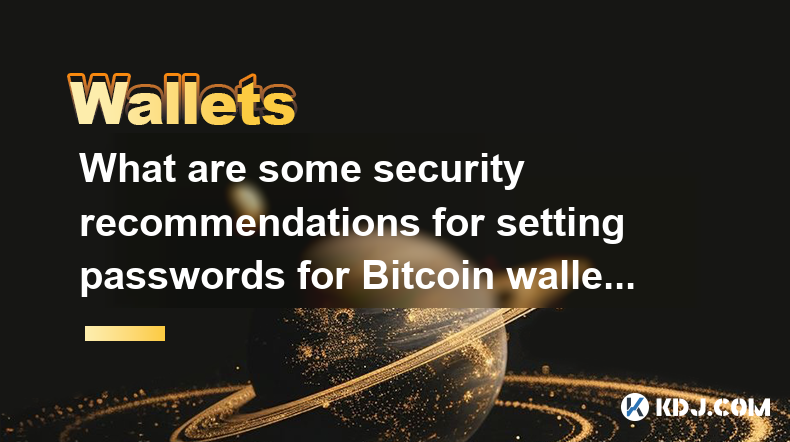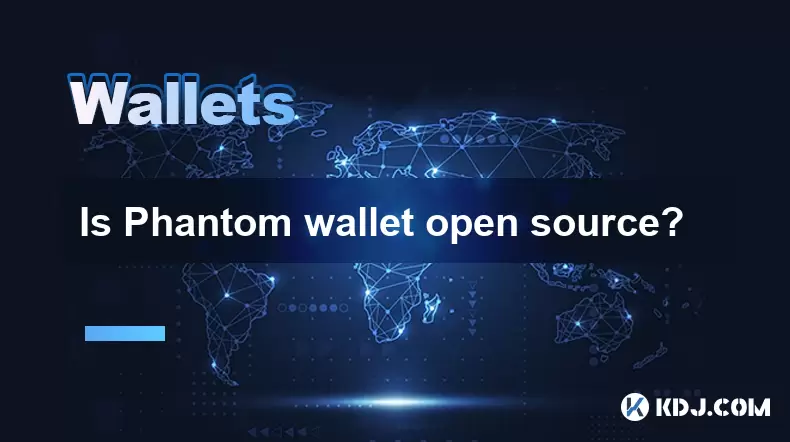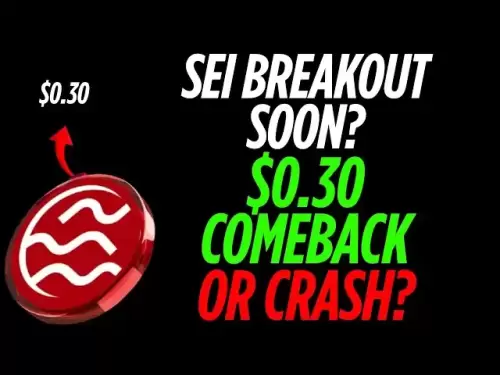-
 Bitcoin
Bitcoin $109,583.2239
0.19% -
 Ethereum
Ethereum $2,583.4612
0.48% -
 Tether USDt
Tether USDt $1.0003
-0.04% -
 XRP
XRP $2.2681
0.70% -
 BNB
BNB $659.9218
-0.52% -
 Solana
Solana $151.4961
-0.37% -
 USDC
USDC $0.9999
-0.02% -
 TRON
TRON $0.2861
1.20% -
 Dogecoin
Dogecoin $0.1718
0.04% -
 Cardano
Cardano $0.5960
-0.07% -
 Hyperliquid
Hyperliquid $40.1233
2.85% -
 Sui
Sui $2.9974
2.48% -
 Bitcoin Cash
Bitcoin Cash $497.1279
-1.76% -
 Chainlink
Chainlink $13.7275
-0.22% -
 UNUS SED LEO
UNUS SED LEO $9.0241
0.70% -
 Avalanche
Avalanche $18.5536
-0.88% -
 Stellar
Stellar $0.2421
1.39% -
 Toncoin
Toncoin $2.8593
-0.51% -
 Shiba Inu
Shiba Inu $0.0...01187
-0.07% -
 Litecoin
Litecoin $90.0023
2.90% -
 Hedera
Hedera $0.1590
2.79% -
 Monero
Monero $322.1495
0.00% -
 Polkadot
Polkadot $3.5453
-1.00% -
 Dai
Dai $1.0000
-0.01% -
 Bitget Token
Bitget Token $4.5733
-1.06% -
 Ethena USDe
Ethena USDe $1.0002
-0.01% -
 Uniswap
Uniswap $7.6345
3.03% -
 Aave
Aave $279.2583
0.47% -
 Pepe
Pepe $0.0...01003
-1.52% -
 Pi
Pi $0.4941
-0.32%
What are some security recommendations for setting passwords for Bitcoin wallets?
Fortify your Bitcoin wallet with a 12+ character password; mix uppercase, lowercase, numbers, and symbols. Use a unique password for each wallet and enable 2FA. A reputable password manager and regular software updates are crucial. Consider a hardware wallet for ultimate security.
Mar 17, 2025 at 03:08 am

Key Points:
- Password Length: Longer passwords are significantly more secure. Aim for at least 12 characters, ideally more.
- Password Complexity: Incorporate uppercase and lowercase letters, numbers, and symbols. Avoid easily guessable patterns.
- Password Uniqueness: Never reuse Bitcoin wallet passwords for any other accounts. A breach in one place compromises all if you reuse passwords.
- Password Management: Use a reputable password manager to generate and securely store strong, unique passwords.
- Two-Factor Authentication (2FA): Always enable 2FA if your wallet offers it. This adds an extra layer of security.
- Hardware Wallets: Consider using a hardware wallet for maximum security. These store your private keys offline, making them significantly harder to compromise.
- Regular Updates: Keep your wallet software updated to benefit from the latest security patches.
What are some security recommendations for setting passwords for Bitcoin wallets?
Securing your Bitcoin wallet begins with a robust password. A weak password is an open invitation to theft. Your private keys, which control access to your Bitcoin, are ultimately protected by this password. Therefore, choosing a strong and unique password is paramount.
The length of your password directly impacts its security. Shorter passwords are easily cracked by brute-force attacks. Aim for at least 12 characters, but longer is always better. The longer the password, the exponentially more difficult it is to guess or crack.
Don't make the mistake of using simple, predictable passwords. Avoid easily guessable information like birthdays, names, or common words. Instead, incorporate a mix of uppercase and lowercase letters, numbers, and symbols. A strong password should appear random and unpredictable.
Reusing passwords is a major security vulnerability. If one account is compromised, all accounts using the same password are at risk. Each Bitcoin wallet should have its own unique, strong password. This is crucial for maintaining the security of your cryptocurrency holdings.
Using a password manager is a highly recommended practice. These tools generate strong, random passwords and securely store them, relieving you of the burden of remembering complex passwords for numerous accounts. Choose a reputable password manager with strong security features.
Two-Factor Authentication (2FA) provides an extra layer of security. This typically involves a secondary verification method, such as a code sent to your phone or email, in addition to your password. Enabling 2FA significantly reduces the risk of unauthorized access, even if your password is somehow compromised.
Hardware wallets offer the highest level of security for storing Bitcoin. These physical devices store your private keys offline, making them immune to most online attacks. They are significantly more secure than software wallets, which are vulnerable to malware and online hacking attempts.
Keeping your wallet software up-to-date is essential. Software developers regularly release updates that patch security vulnerabilities. Failing to update your wallet leaves it exposed to potential exploits that could compromise your funds. Regular updates are a crucial part of maintaining your wallet's security.
Never share your password with anyone. Legitimate Bitcoin services will never ask for your password. Be wary of phishing scams that attempt to trick you into revealing your private information. Always verify the authenticity of any communication requesting your password.
Consider using a passphrase instead of a password. Passphrases are longer and more complex than traditional passwords, making them even more resistant to brute-force attacks. A passphrase is essentially a sentence or phrase that is easy to remember but difficult to guess.
Store your recovery phrase securely. Your recovery phrase (also called seed phrase) is a list of words that allows you to restore access to your Bitcoin wallet if you lose your password or your device is compromised. Never share it with anyone, and store it offline in a secure and protected location.
Frequently Asked Questions:
Q: What happens if I forget my Bitcoin wallet password?
A: If you forget your password, you may lose access to your Bitcoin. The recovery process depends on your wallet type and whether you have a recovery phrase (seed phrase). Some wallets offer password reset options, while others require the recovery phrase. Without either, recovery may be impossible.
Q: Are all Bitcoin wallets equally secure?
A: No. The security of a Bitcoin wallet varies greatly depending on the type of wallet (hardware, software, online), its features (2FA, security updates), and how securely the user manages their password and recovery phrase. Hardware wallets are generally considered the most secure.
Q: How often should I change my Bitcoin wallet password?
A: While there's no strict timeframe, it's good practice to change your password periodically, perhaps every few months, or whenever you suspect a security breach. However, a strong, unique password that is never reused is more effective than frequently changing a weak password.
Q: What is a recovery phrase and why is it important?
A: A recovery phrase (or seed phrase) is a sequence of words that acts as a backup key to your Bitcoin wallet. If you lose your password or your device is compromised, this phrase allows you to restore access to your funds. Keep it safe and secure, offline, as it is the ultimate key to your Bitcoin.
Q: What are some signs of a phishing scam targeting Bitcoin wallets?
A: Phishing scams often involve emails or websites that mimic legitimate Bitcoin services. They might ask for your password, recovery phrase, or private keys. Always verify the authenticity of any communication requesting sensitive information. Legitimate services will never ask for these details.
Disclaimer:info@kdj.com
The information provided is not trading advice. kdj.com does not assume any responsibility for any investments made based on the information provided in this article. Cryptocurrencies are highly volatile and it is highly recommended that you invest with caution after thorough research!
If you believe that the content used on this website infringes your copyright, please contact us immediately (info@kdj.com) and we will delete it promptly.
- Samsung's Semiconductor Strategy: Demand Dilemmas and Future Directions
- 2025-07-04 04:30:13
- Gem, Cardano, Price Increase: What's Driving the Crypto Buzz?
- 2025-07-04 04:30:13
- Inside the Crypto Ecosystem: Big Eyes Crypto's Purr-fect Blend of Memes and Marine Conservation
- 2025-07-04 04:50:13
- Nano Labs, BNB, and a $1B War Chest: A New York Minute on Crypto's Latest Power Play
- 2025-07-04 04:35:12
- Crypto's Wild Ride: TOKEN6900, SPX6900, and the S&P 500 Connection
- 2025-07-04 03:50:13
- Pepe Unchained Price Rebound Hopes Dwindle Amidst Weak Volume
- 2025-07-04 03:55:13
Related knowledge

How to cancel a pending transaction in Phantom wallet?
Jul 03,2025 at 07:21pm
Understanding Pending Transactions in Phantom WalletA pending transaction in the Phantom wallet occurs when a user initiates a transfer or interaction with the Solana blockchain, but it hasn't yet been confirmed by the network. This can happen due to various reasons such as low transaction fees, network congestion, or incorrect gas settings. It's import...

How to see the estimated value of my tokens in Phantom wallet?
Jul 04,2025 at 12:21am
What is Phantom Wallet?Phantom wallet is one of the most popular cryptocurrency wallets designed for the Solana blockchain. It allows users to store, send, receive, and manage various tokens built on Solana, including SPL tokens and NFTs. The wallet offers a user-friendly interface, making it accessible for both beginners and advanced users in the crypt...

How to lock my Phantom wallet extension?
Jul 03,2025 at 11:14am
What Is the Phantom Wallet and Why Lock It?The Phantom wallet is a popular non-custodial cryptocurrency wallet designed for interacting with the Solana blockchain. Supporting both browser extensions and mobile apps, Phantom allows users to store, send, receive, and stake SOL tokens, as well as interact with decentralized applications (dApps). Securing y...

Does Phantom wallet offer two-factor authentication (2FA)?
Jul 03,2025 at 09:00am
Understanding Phantom Wallet and Its Security FeaturesPhantom wallet is a widely used non-custodial cryptocurrency wallet that supports the Solana blockchain. It allows users to store, send, receive, and interact with decentralized applications (dApps) seamlessly. As security is a top priority for any crypto wallet user, security features like two-facto...

What is "rent" on Solana and how does it affect my Phantom wallet?
Jul 02,2025 at 08:35pm
Understanding 'Rent' on SolanaIn the context of Solana, the term 'rent' refers to a storage fee that users pay for maintaining data on the blockchain. Unlike Ethereum, where storage costs are paid once via gas fees during contract deployment, Solana implements a recurring cost model to ensure efficient usage of network resources. This means that any acc...

Is Phantom wallet open source?
Jul 03,2025 at 12:29am
What is Phantom Wallet?Phantom wallet is a non-custodial cryptocurrency wallet primarily designed for the Solana blockchain. It allows users to store, send, receive, and interact with decentralized applications (dApps) on the Solana network. The wallet is available as a browser extension and mobile application, offering a seamless experience for both be...

How to cancel a pending transaction in Phantom wallet?
Jul 03,2025 at 07:21pm
Understanding Pending Transactions in Phantom WalletA pending transaction in the Phantom wallet occurs when a user initiates a transfer or interaction with the Solana blockchain, but it hasn't yet been confirmed by the network. This can happen due to various reasons such as low transaction fees, network congestion, or incorrect gas settings. It's import...

How to see the estimated value of my tokens in Phantom wallet?
Jul 04,2025 at 12:21am
What is Phantom Wallet?Phantom wallet is one of the most popular cryptocurrency wallets designed for the Solana blockchain. It allows users to store, send, receive, and manage various tokens built on Solana, including SPL tokens and NFTs. The wallet offers a user-friendly interface, making it accessible for both beginners and advanced users in the crypt...

How to lock my Phantom wallet extension?
Jul 03,2025 at 11:14am
What Is the Phantom Wallet and Why Lock It?The Phantom wallet is a popular non-custodial cryptocurrency wallet designed for interacting with the Solana blockchain. Supporting both browser extensions and mobile apps, Phantom allows users to store, send, receive, and stake SOL tokens, as well as interact with decentralized applications (dApps). Securing y...

Does Phantom wallet offer two-factor authentication (2FA)?
Jul 03,2025 at 09:00am
Understanding Phantom Wallet and Its Security FeaturesPhantom wallet is a widely used non-custodial cryptocurrency wallet that supports the Solana blockchain. It allows users to store, send, receive, and interact with decentralized applications (dApps) seamlessly. As security is a top priority for any crypto wallet user, security features like two-facto...

What is "rent" on Solana and how does it affect my Phantom wallet?
Jul 02,2025 at 08:35pm
Understanding 'Rent' on SolanaIn the context of Solana, the term 'rent' refers to a storage fee that users pay for maintaining data on the blockchain. Unlike Ethereum, where storage costs are paid once via gas fees during contract deployment, Solana implements a recurring cost model to ensure efficient usage of network resources. This means that any acc...

Is Phantom wallet open source?
Jul 03,2025 at 12:29am
What is Phantom Wallet?Phantom wallet is a non-custodial cryptocurrency wallet primarily designed for the Solana blockchain. It allows users to store, send, receive, and interact with decentralized applications (dApps) on the Solana network. The wallet is available as a browser extension and mobile application, offering a seamless experience for both be...
See all articles

























































































